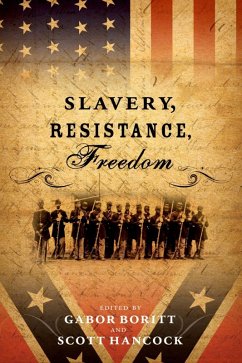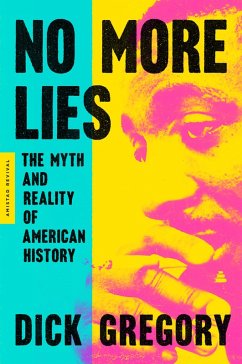
Disease, Resistance, and Lies (eBook, ePUB)
The Demise of the Transatlantic Slave Trade to Brazil and Cuba

PAYBACK Punkte
8 °P sammeln!
In the early nineteenth century the major economic players of the Atlantic trade lanes -- the United States, Brazil, and Cuba -- witnessed explosive commercial growth. Commodities like cotton, coffee, and sugar contributed to the fantastic wealth of an elite few and the enslavement of many. As a result of an increased population and concurrent economic expansion, the United States widened its trade relationship with Cuba and Brazil, importing half of Brazil's coffee exports and 82 percent of Cuba's total exports by 1877. Disease, Resistance, and Lies examines the impact of these burgeoning mar...
In the early nineteenth century the major economic players of the Atlantic trade lanes -- the United States, Brazil, and Cuba -- witnessed explosive commercial growth. Commodities like cotton, coffee, and sugar contributed to the fantastic wealth of an elite few and the enslavement of many. As a result of an increased population and concurrent economic expansion, the United States widened its trade relationship with Cuba and Brazil, importing half of Brazil's coffee exports and 82 percent of Cuba's total exports by 1877. Disease, Resistance, and Lies examines the impact of these burgeoning markets on the Atlantic slave trade between these countries from 1808 -- when the U.S. government outlawed American involvement in the slave trade to Cuba and Brazil -- to 1867, when slave traffic to Cuba ceased. In his comparative study, Dale Graden engages several important historiographic debates, including the extent to which U.S. merchants and capital facilitated the slave trade to Brazil and Cuba, the role of infectious disease in ending the trade to those countries, and the effect of slave revolts in helping to bring the transatlantic slave trade to an end. Graden situates the transatlantic slave trade within the expanding and rapidly changing international economy of the first half of the nineteenth century, offering a fresh analysis of the "Southern Triangle Trade" that linked Cuba, Brazil, and Africa. Disease, Resistance, and Lies challenges more conservative interpretations of the waning decades of the transatlantic slave trade by arguing that the threats of infectious disease and slave resistance both influenced policymakers to suppress slave traffic to Brazil and Cuba and also made American merchants increasingly unwilling to risk their capital in the transport of slaves.
Dieser Download kann aus rechtlichen Gründen nur mit Rechnungsadresse in A, D ausgeliefert werden.













